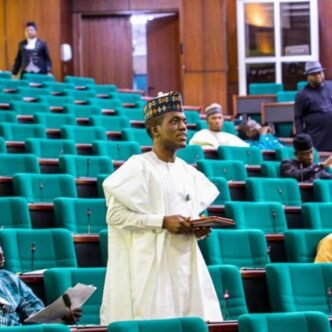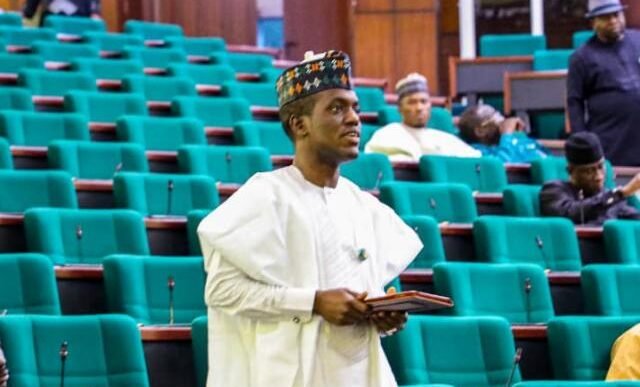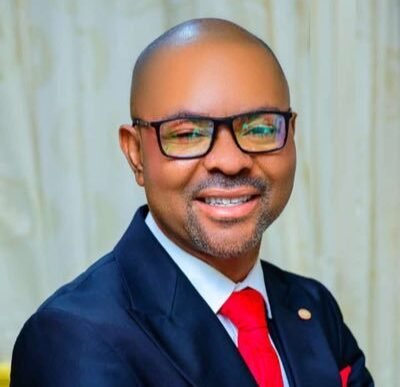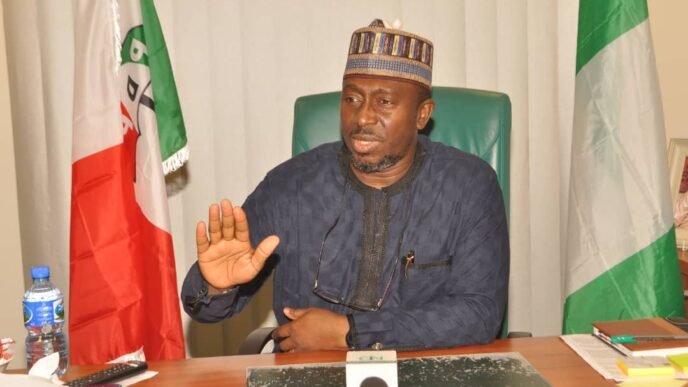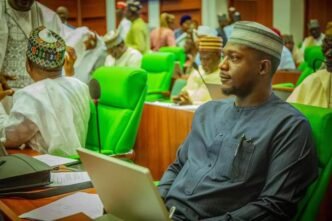HB 1589 – A BILL FOR AN ACT TO ALTER THE PROVISIONS OF THE CONSTITUTION OF THE FEDERAL REPUBLIC OF NIGERIA TO REFORM THE MODE OF APPOINTING THE CHAIRMAN OF THE INDEPENDENT NATIONAL ELECTORAL COMMISSION BY INVOLVING THE NATIONAL JUDICIAL COUNCIL, AND FOR RELATED MATTERS. Bill Progress: Committee Stage
This Bill seeks to alter the Constitution by introducing a reform in the appointment process of the Chairman of the Independent National Electoral Commission. The proposed amendment aims to involve the National Judicial Council (NJC) in the selection of the INEC Chairman, thereby enhancing the independence, credibility, and transparency of the appointment process.
A significant bill, HB 1589, is currently making its way through the Nigerian House of Representatives. This piece of legislation, formally described as “A BILL FOR AN ACT TO ALTER THE PROVISIONS OF THE CONSTITUTION OF THE FEDERAL REPUBLIC OF NIGERIA TO REFORM THE MODE OF APPOINTING THE CHAIRMAN OF THE INDEPENDENT NATIONAL ELECTORAL COMMISSION BY INVOLVING THE NATIONAL JUDICIAL COUNCIL, AND FOR RELATED MATTERS,” represents an ambitious effort to reshape the appointment process for one of Nigeria’s key electoral positions.
The bill’s primary aim is to amend the Nigerian Constitution, a process that holds significant weight in the political landscape of the nation. The amendment process is no small feat; it requires a specific majority in both chambers of the National Assembly alongside ratification from at least two-thirds of the state’s Houses of Assembly. This rigorous requirement underscores the importance of the proposal and sets the stage for a contentious legislative journey.
At the heart of HB 1589 is a proposed reform of how the Chairman of the Independent National Electoral Commission (INEC) is appointed. Currently, this position is filled by presidential nomination, followed by Senate confirmation. Critics have long been concerned that this procedure may compromise the independence of INEC, raising fears of political influence swaying electoral operations and outcomes.
Under the new proposal, the National Judicial Council (NJC) would be involved in the appointment process. The NJC, which primarily oversees the appointment and discipline of judicial officers, is viewed as a relatively independent body. By introducing the NJC into the INEC Chairman appointment process, HB 1589 seeks to insulate this pivotal role from executive interference, enhancing the perceptions of impartiality throughout the electoral process.
This change is significant for several reasons. First and foremost, it aims to bolster the independence of the INEC. A truly autonomous electoral body is essential for the integrity of elections in Nigeria, which have faced various challenges, including allegations of fraud and bias. By reconfiguring the appointment mechanism, the bill may help alleviate these concerns and foster greater public trust in electoral outcomes.
Moreover, the call for reform comes at a precarious time in Nigeria’s democratic evolution. As the nation prepares for future electoral cycles, the stakes are incredibly high. Free and fair elections are the foundation of a stable democracy, and having a dependable electoral commission is critical for ensuring that citizens can exercise their right to vote without fear or coercion. As such, the passage of HB 1589 could mark a critical step toward fostering a more robust democratic framework.
Additionally, the inclusion of the NJC in this process enhances the credibility of the electoral body. Appointing the INEC Chairman through a system that involves judicial oversight could lend a layer of legitimacy that has been absent in previous appointments. This could, in turn, encourage broader participation from the electorate and improve overall civic engagement.
The legislative process that HB 1589 will undergo is complex and multifaceted. The journey begins with its first reading before the house, where it was formally introduced. The second reading will focus on the debate surrounding the bill’s general principles and merits. This debate is critical as it allows for various stakeholders, including lawmakers and the public, to voice their opinions and concerns regarding the proposed amendment.
Following that, the bill will enter the committee stage. This phase involves a detailed examination and potential amendments by the relevant committees, likely including the Committee on Constitution Review. Public hearings may also be part of this phase, providing a platform for citizens and advocacy groups to express their views on the legislation.
Once these stages are complete and any adjustments made, the bill will proceed to its third reading, where it will face further debate and a final vote. For the bill to advance, it must secure a two-thirds majority in both the House of Representatives and the Senate, which is no easy feat considering the intricacies of Nigerian politics.
Furthermore, as a constitutional amendment, HB 1589 requires additional ratification from at least two-thirds of the State Houses of Assembly—currently encompassing 24 out of 36 states. This final set of approvals serves as a crucial checkpoint that can determine the fate of the bill. Each state legislature will deliberate on the proposal, reflecting the diverse views and interests of their constituents.
Finally, if the bill successfully navigates the legislative gauntlet and receives the necessary state approvals, it will be sent to the President for assent. If the President withholds assent, an override is possible, provided that both chambers of the National Assembly can achieve a two-thirds majority vote once again.
As of now, the inclusion of HB 1589 on the House of Representatives order paper indicates that the bill has officially commenced its journey through the legislative process. The path ahead remains uncertain, hinging on political dynamics, public sentiment, and the broader implications of constitutional reform.
The introduction of HB 1589 marks an important opportunity for Nigeria to rethink governance in relation to its electoral processes. This bill embodies a crucial step towards fortifying the democratic structures that underpin the nation’s electoral integrity—an objective that, if realized, could have profound implications for Nigeria’s political landscape and the future of its democracy.


